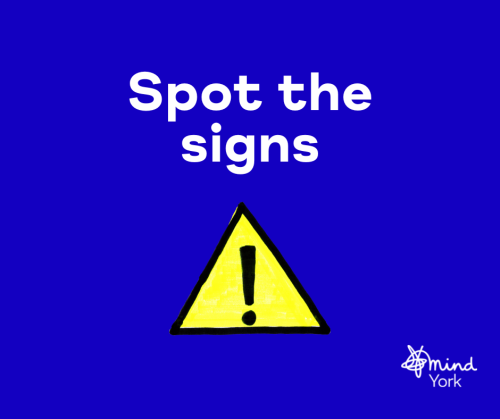31st May 2025, 12:00
Posted: 5th October 2022
Suicide: Risk Factors & Warning Signs
It can be very difficult if you are worried about someone who feels suicidal, and you may feel like you don’t know what to look out for or how to support them(link to that page).
Here are a few of the risk factors and warning signs to look out for.
Potential (but not all) risk factors for suicide include:
- Previous suicide attempts
- History of substance abuse
- History of mental health conditions – depression, anxiety, bipolar, PTSD
- Relationship problems – conflict with parents and / or romantic partners
- Legal or disciplinary problems
- Access to harmful means, such as medication or weapons
- Recent death or suicide of a family member or a close friend
- Ongoing exposure to bullying behaviour
- Physical illness or disability
- Having mental health problems
Potential (but not all) warning signs of suicide include:
- social withdrawal
- a persistent drop in mood
- disinterest in maintaining personal hygiene or appearance
- uncharacteristically reckless behaviour
- poor diet changes, rapid weight changes
- being distracted
- anger
- insomnia
- alcohol or drug abuse
- giving away sentimental or expensive possessions
- hopelessness
- failing to see a future
- believing they are a burden to others
- saying they feel worthless or alone
- talking about their death or wanting to die
- a sudden and unexpected sense of relief/positive change of mood (could indicate a plan has been made to end their life)
If you have seriously harmed yourself, or you don’t feel that you can keep yourself safe right now, call 999 or go straight to A&E.
If you are experiencing suicidal thoughts and need support, you can:
- call your GP and ask for an emergency appointment
- call NHS 111 for out-of-hours help
Our crisis care page has more information on who can help.




